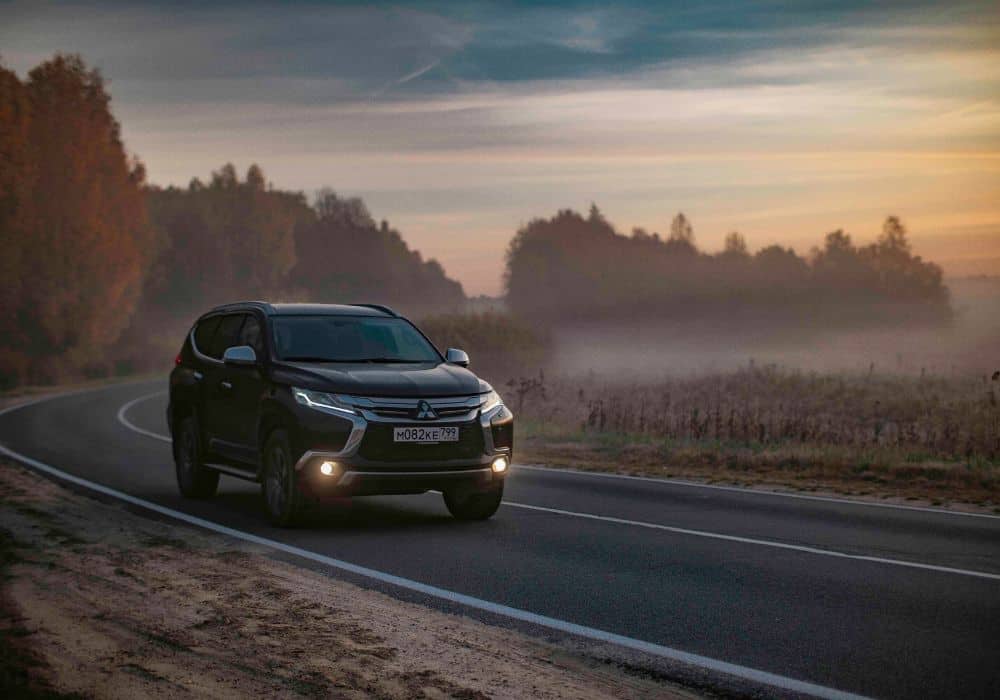In today’s world, global inflation has been at an all-time high, causing a surge in financial instability. During these difficult times, owning assets like cars represents the individuality and freedom symbolic of the current industrial age. As private ownership and its financial benefits have risen, so has car usage. Car enthusiasts possessing wealth and intent on the collection may not think as profoundly about the benefits. Still, for regular people, it has the potential to become a great boon to one’s finances. Here are some exciting ways owning a car can improve your financial health.
Benefits of Owning a car
1. Potential Long-Term Savings
Certain up front costs are associated with car purchases, such as down payments, registration fees, and taxes. However, once you fully pay for the vehicle, you will only have ongoing costs like fuel and maintenance. This could potentially be more affordable than ongoing transportation expenses when you do not own a car.
If you lack express vehicle ownership, carpooling with another can prove cost-effective. Carpooling is when two or more people with similar routes or destinations commute together in a car. This allows you to split the costs of fuel, maintenance, and tolls while also maintaining a manner of privacy absent in public transportation.
2. Car Title Loans
Car title or pink slip loans are short-term loans where your vehicle’s title is used as collateral. This allows you to borrow around 25% to 50% of the value of your car. You repay the loan by returning the borrowed amount plus an interest rate. Though car title loans can be expensive, they are convenient for customers with credit challenges who urgently need money.
Applying for these loans involves a relatively simple process. The payback scheme is also suitable and includes multiple installment plans for the customer’s ease. Most lenders will not even check your credit score, allowing for a fast and effective procedure.
3. Resale Value
Cars typically depreciate in value over the years. However, if your car is well-maintained and has a good reputation for reliability in the car industry, it may hold its value relatively well over time. This could translate into a higher resale value when you sell to a second-hand car dealer, trade it, or sell it directly in the open market.
Cars with a high resale value are a beneficial financial investment, typically considered low risk by investors and banks alike. Companies like Toyota Corolla, Suzuki, and Honda generally have higher rates of return due to being respected brands. As in the case of car title loans, this method is beneficial when in a pinch for some extra cash.
4. Opportunities for Additional Income
If local regulations allow and it suits your circumstances, there are opportunities to generate extra income using your car. Some options include participating in ride-sharing services as discussed above, delivering food, or renting out your vehicle during periods of non-use.
Other ways include wrapping your car in removable advertisements, especially if you commute long. In this case, it becomes paramount to carefully consider which company you choose to advertise, as it’s easy to fall prey to scams. For instance, companies such as Carvertise and Wrapify are partnered with brands and guaranteed to pay you well for your services, passive as they are.
5. Budgeting
We all know that budgeting is essential for allocating and tracking our expenses, enabling us to make well-informed financial decisions and achieve desired goals. In this context, owning a car can be of great assistance as it allows you to plan and adjust ahead of time.
This is due to car ownership offering the advantage of predictable and fixed monthly transportation costs. Even though this is highly dependent on your vehicle’s fuel efficiency and the current price of gasoline, compared to the variable costs associated with ridesharing or public transportation, it can significantly help with budgeting. So, having a general idea of your transportation costs can really make financial planning easier and give your overall financial situation a nice boost.
6. Time Savings
Time is money indeed, as the time you spend waiting for public transportation and rideshare services represents a significant opportunity cost. Opportunity cost is the cost of choosing one alternative over another, involving the loss of the potential benefits when you select another option.
In this case, owning a car can save valuable time, which can be utilized for work, leisure, or other productive activities. This is mainly due to this private ownership reducing the wait time and strict adherence to punctuality involved with public transportation services. With the advent of self-driving cars, many argue that it will save the time of thousands of workers driving to work.
7. Bulk Purchases and Savings
Carrying large amounts of groceries or other purchases when using public transportation is difficult and inconvenient. Not only do you have to manage your bags, but you may also have to purchase additional seats every time. This can be incredibly challenging for families or individuals who regularly shop for a week’s worth of groceries or more oversized items.
On the other hand, owning a car allows you to take advantage of bulk purchases and subsequent discounts on groceries, household items, and other essentials. This way, you can buy in larger quantities which often leads to lower per-unit costs.
The same goes for carrying items for work or hobbies. If your job or hobbies involve taking equipment, tools, or supplies, owning a car provides the convenience of transporting these items without the hassle of finding alternative transportation methods.
8. Avoiding Surge Pricing
During peak travel times or special events, ride-share services often implement surge pricing, which can significantly increase the cost of a ride. Discussion of ethics and morality involved in such situations aside, owning a car helps you avoid these price surges while allowing you to allocate the money saved for much better use, whether groceries or otherwise.
Another associated problem in these circumstances is the congestion and discomfort with public transport, which can become pretty crowded and uncomfortable, especially during rush hours. This is mainly due to public transport not receiving this price hike, so those who commonly use other services, such as Uber, may also resort to public transportation.
9. Avoiding Rental Costs
Renting a car can and was already expensive due to high demand, insurance, and fees. Additionally, rental prices have been increasing significantly these days due to the pandemic having hit the car rental industry particularly hard and their recovery since being a complex and slow process. In such a world, these rental costs can grow quickly if you wish to use a car for extended periods. Buying and owning a car becomes a lighter option for your wallet, as it can save you money on rental fees if you frequently need transportation for work trips, vacations, or special occasions.
10. Family Convenience
When you have a family, each member has different places to go for work, school, social events, and appointments. Unlike public transportation, which operates on fixed routes and schedules, owning a car offers flexibility and convenience to cater to diverse destinations. This personalized approach helps you plan routes effectively to minimize travel time and meet everyone’s needs.
Additionally, in countries without reliable public transit systems, people often spend a lot of time and money using multiple transportation services just to reach their final destination. Having a car can make travel easier for work, family outings, vacations, and visiting relatives. This can be more cost-effective than purchasing multiple tickets or fares for everyone.
11. Increased Mobility
Owning a car provides the freedom to travel whenever and wherever you desire. This opens up possibilities, whether for better career opportunities, exploring new destinations, or attending events that may not be conveniently accessible through public transportation. And it is especially so for the elderly, who may experience difficulties walking to the bus stop or cycling, and for whom driving becomes the only option for independent mobility.
Additionally, during emergency situations, owning a car can serve as a lifeline. It grants you the ability to swiftly evacuate during natural disasters, travel to hospitals for medical emergencies, or respond promptly to unexpected urgent situations. In a sense, it saves you from even heftier medical or property bills.
12. Convenient Travel With Pets
So much about humans and so little thought given to animals! If you have a pet, you would know how expensive pet transportation or relocation services are, not to mention the risks involved. Though this differs from country to country, transporting pets costs around $500 to $1500, based on size.
However, owning a car effectively makes you your own boss, making traveling with them more convenient and cost-effective and saving you money. Of course, this may involve additional expenses to ensure your critter of choice has a stress-free traveling experience, such as carriers and restraints. Still, such expenses are generally less than actual pet transportation services.
Endnote
Buying and maintaining a car often involves many complications, ranging from the sheer initial expense to maintenance checkups, not to mention the documents involved. However, if you use your hands correctly, they can be a viable financial asset. With one’s financial status directly correlated to one’s mental health, it’s no exaggeration to say that it may increase the quality of your life and your life chances. This is without considering the various other benefits which directly tie into this, ranging from accessibility to other areas to jobs and so on. Such expenses become worthwhile, especially in remote regions essentially cut off from larger cities and their associated wealth.

